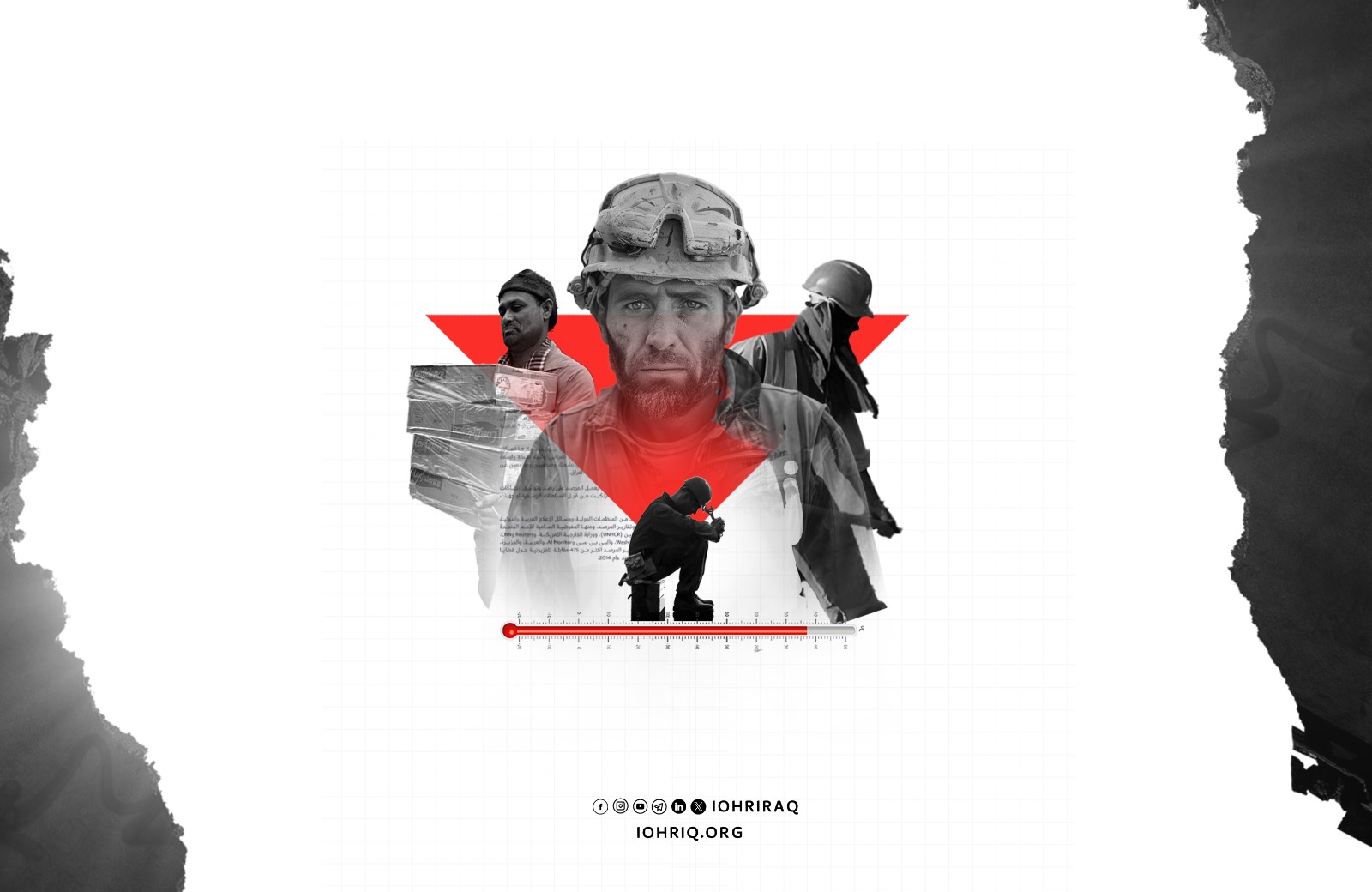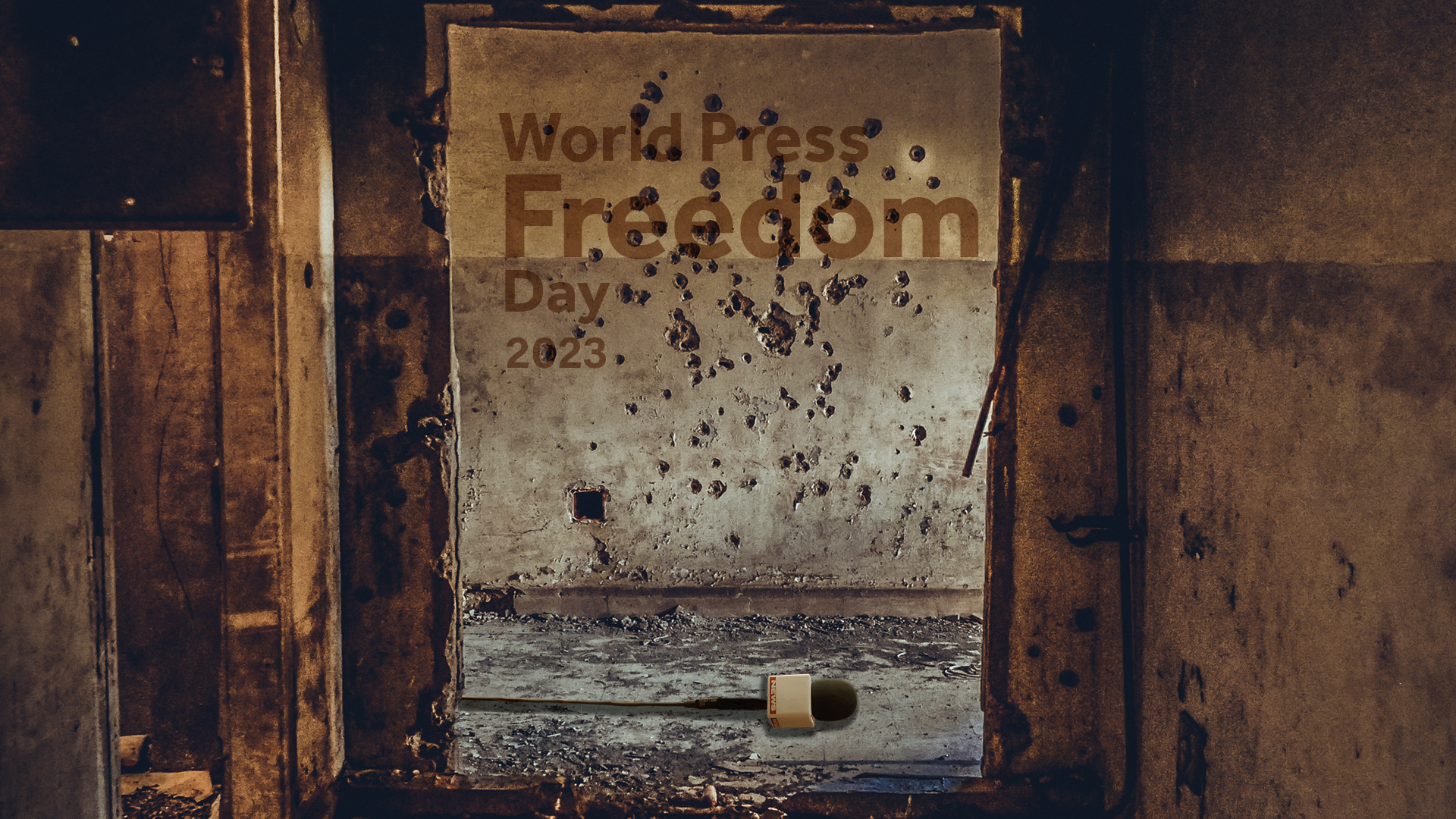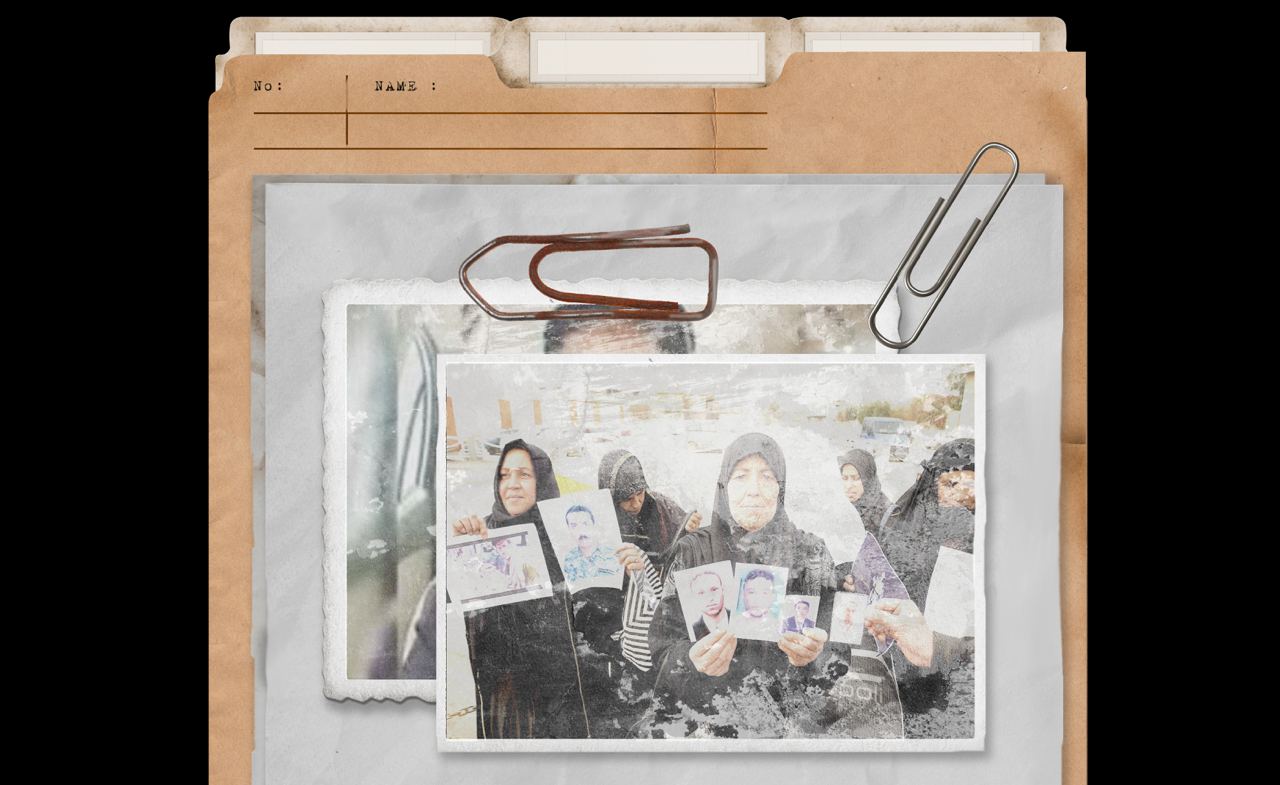(July 13th, 2024)
The Iraqi Observatory for Human Rights (IOHR) has reported that recent climate changes in Iraq are directly impacting the lives of workers, exposing them to environmental risks that threaten their health and safety. Rising temperatures, water scarcity, and frequent dust storms are all factors that create significant challenges for Iraqi workers in their work environment.
Laborers in Iraq, especially those working under direct sunlight, are facing numerous risks that may prevent them from working due to sunstroke, and in some cases, may even result in fatalities. The effects of climate change are evident in the unprecedented rise in temperatures during the summer, with some areas experiencing temperatures exceeding 50 degrees Celsius.
On June 27, 2024, the Ministry of Labor and Social Affairs reported a significant number of cases of workers suffering from heat exhaustion this summer due to their exposure to unhealthy and inhumane working conditions amidst the exceptionally high temperatures in Iraq.
In a press statement, the Ministry’s spokesman, Najm Al-Oqabi, said, “We recorded a large number of casualties who were transferred to the hospital as a result of excessive heat exposure.”
The Iraqi Observatory for Human Rights (IOHR) spoke to a group of workers from various fields who all share one common factor: working under the sun during the hottest season. Delivery drivers are at the greatest risk, particularly those who choose to work during the day.
Mujtaba Hussein, a 19-year-old delivery driver, says, “There are no raises to the calculated wages; the amount earned is the same whether it is morning or evening, summer or winter. Restaurant owners do not add extra fees for working in hot temperatures.”
Aqeel Tarish, a 27-year-old gas cylinder seller, confirms that he has contracted typhoid disease multiple times due to working in the sun, but he is forced to continue as it is his only source of livelihood.
According to the Earth Protection Program (EPP) of the Iraqi Observatory for Human Rights, adherence to international standards is one of the keyways to reduce the impact of climate change on workers. The World Health Organization indicates that work environments must be equipped with air conditioning and protection from extreme weather conditions to ensure the safety and health of workers.
The risks that workers in Iraq face as a result of climate change include extreme temperatures, which are considered one of the biggest challenges, as they increase the risk of sunstroke and dehydration. Water scarcity leads to difficulties in maintaining personal hygiene and sanitary working conditions, increasing the potential for the spread of disease. These harsh conditions force workers to labor in unhealthy and dangerous environments, exacerbating public health and productivity problems.
The standards of the International Labor Organization (ILO) require employers and governments to take measures to reduce exposure to harmful environmental factors. These measures include providing air conditioning systems in workplaces exposed to high temperatures, ensuring access to clean water and appropriate sanitary facilities, and training workers on how to deal with harsh environmental conditions and protect themselves against them.

According to the Earth Protection Program (EPP) team at the Iraqi Observatory for Human Rights, a significant responsibility falls on the Iraqi government to protect workers from the effects of climate change by enacting strict laws that require employers to provide safe and healthy working environments.
The government must also work to improve the healthcare system to ensure that workers exposed to health risks due to climate change receive the necessary care. Employers, on their part, must provide protective equipment and clothing for workers in harsh climatic conditions, adhere to international safety standards, and offer necessary training for workers.
Iraq has ratified several International Labor Organization conventions aimed at ensuring the protection of workers in various sectors. Among these agreements is the recent ratification of the Safety and Health in Agriculture Convention of 2001 (No. 184), which reinforces the commitment to providing a decent work environment that meets international standards.
Bara’a Mohammad, an air conditioning maintenance and installation worker, points out that his job requires facing the scorching summer heat, saying, “We work under the sun and do not receive any reimbursement or wage increases despite the health risks.”
Mohammad Jawad, a porter in commercial markets, suffers from a low wage of 150,000 Iraqi dinars per week (about 100 US dollars). He experienced a health crisis due to the hot weather, but his absence was not considered paid sick leave.
Hussein Mohammad, a worker in the fields of aluminum, glass, and blacksmithing, explains that the daily wage is fixed and does not vary between summer and winter. Despite the hazardous nature of his work, he is forced to continue as there are no other alternatives.
The International Labor Organization emphasizes the need to provide safe and healthy working conditions for workers, including regular breaks in shaded or cool places, sufficient and clean drinking water, protective clothing and supplies for sun protection, as well as medical services and first aid.
In August 2022, the International Labor Organization in Iraq urged its three partners—the government, employers, and workers’ organizations—to ensure that appropriate measures are taken to mitigate some of the risks associated with working under extreme temperatures and to provide adequate protection for workers as temperatures in Iraq have recently reached 50 degrees Celsius.
The Iraqi Observatory for Human Rights stated, “The extreme heat in Iraq greatly affects the lives of workers, increasing the risk of heat exhaustion and heat-related diseases such as heatstroke. Many workers are forced to continue working under these conditions due to the lack of alternative job opportunities.”
Pursuant to Iraqi Labor Law No. 37 of 2016, workers have the right to safe and healthy working conditions. The law mandates the provision of personal protective equipment, the regulation of working hours to ensure they do not exceed the legal limits, and the provision of regular breaks.
Workers are also entitled to additional wages for working in hazardous or arduous conditions. Basic rights that workers must enjoy, in accordance with international and local standards, include the right to a safe and healthy work environment, the right to breaks, the right to clean drinking water, and the right to receive fair wages commensurate with the risks of their work.
On several occasions, the Iraqi government has announced the suspension of official working hours due to high temperatures, but these holidays do not include private sector workers. If a private sector worker requests leave due to the heat, they may face dismissal.
Mohammad Jawad recounts that he once fell ill due to the heat, but his employer did not consider the days he missed as paid leave. Workers in the aluminum, glass, and blacksmithing fields find their work much more challenging in the summer because they deal with tools that generate heat, in addition to being forced to complete their work under the sun.
Hussein Mohammad, who has worked in this field since childhood, points out that the daily wage is fixed during the summer and does not differ from the winter. Mohammad confirms that some choose to stay home during the summer for health reasons, but they are often forced to work under the sun without any additional compensation from the employer.
Iraq must adhere to International Labor Organization standards and provide appropriate and safe working conditions for workers, especially under extreme weather conditions. Employers and the government must take serious steps to guarantee workers' rights and provide them with the necessary support to improve their status and working conditions. The Iraqi government must also enhance legislation related to work safety and ensure its effective implementation.




